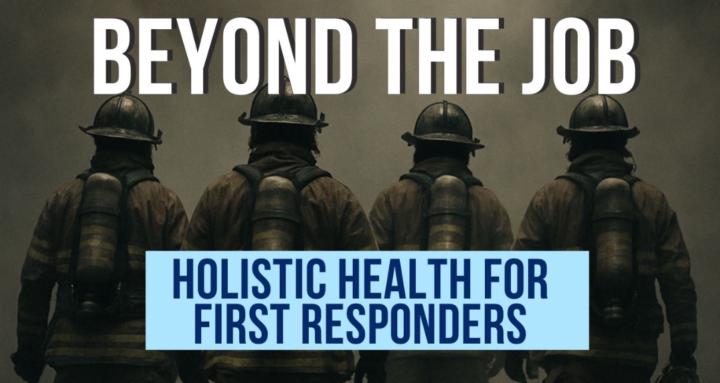Apr '25 • Mindset
Firefighting Is More Than A Job It's A Lifestyle
Firefighting Isn’t Just a Job—It’s a Lifestyle That Requires a Fighter’s Mindset
By John Kelly | @holistic_first_responders
Most firefighters sign up for the job because they want to serve.
They’re wired for chaos, calm in crisis, and committed to showing up when it counts.
But here’s what no one tells you at the academy:
Firefighting is not just a job.
It’s not even a career.
It’s a lifestyle—one that will change your biology, your psychology, and your relationships.
And if you don’t approach it with that level of respect, the job will take more than you bargained for.
You Are a Fighter—But You’re Fighting a Different Kind of Battle
Firefighters often don’t see themselves as athletes or fighters.
But you are. And you’ve been fighting longer than most realize.
Think about it this way:
A professional fighter trains for one opponent, maybe two or three fights a year. They know when the fight is coming. They get time to prepare and time to recover.
Now contrast that with the firefighter:
You are fighting three opponents—every day, every week, every shift—for 20 to 30 years:
Sleep Deprivation
Toxic Exposure
Chronic Stress and Trauma
You don’t get to schedule your fights.
They come at 2 a.m., during holidays, mid-meal, mid-sleep.
And there is no off-season. Just shift after shift.
So ask yourself: What happens to a fighter who never rests between fights?
They break down. Physically. Mentally. Hormonally.
Unless they change how they live outside of the ring.
Firefighting Requires a Lifestyle Strategy—Not Just a Training Program
You wouldn’t step into a burning building without gear.
So why would you keep stepping into this career without a system to support you off the job?
This mindset shift—from "firefighter as employee" to "firefighter as tactical athlete"—is everything.
Because the truth is, if you don’t train for the lifestyle, the lifestyle will train you to fail.
And that failure doesn’t always show up immediately.
It shows up in broken sleep. Short tempers. Fatigue that no amount of caffeine can fix. Hormones that flatline. And relationships that quietly erode over time.
This Lifestyle Must Be Lived Proactively
The key to longevity isn’t just surviving the shift.
It’s learning to recover between the fights.
That means:
Managing your nervous system with breathwork and sleep protocols
Balancing hormones through whole food nutrition, lab testing, and smart supplementation
Training based on your recovery and HRV—not ego
Saying no to high-intensity workouts when you're sleep-deprived and inflamed
Building routines around your body’s data, not just your department’s schedule
This isn’t fluff. This is strategy.
And it’s how you make it to retirement healthy, strong, and present for your family.
You Have to Train for the Long Game
If you want to serve longer, live stronger, and retire without being broken—this mindset has to change now.
You are not a regular employee. You’re a high-performance professional, fighting battles no one else sees.
So stop living like this is just a 9-to-5.
Live like a fighter.
Train like your life depends on it—because it does.
6
1 comment
Powered by

